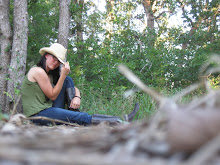It is true that great adventures are meant to change a person. They grow and become someone new, someone more than who they were before. In the case of Lord of the Rings, Frodo is no longer the quiet hobbit, content to sit at home and enjoy company. In the case of Eragon, he is no longer the ignorant farm boy who consistently allows his anger to dictate what his actions are. But in both cases, I wonder why they are not able to grow into something that allows them to live their previous life, but more fully. This seems particularly evident in Eragon. In Lord of the Rings, the culture of the hobbits, and the nature of his journey, does not allow Frodo to go back to what he was before, or to live with the hobbits in a way that could be more fulfilling than it was previously. He has also experienced far too many hurts to truly move past it, and make himself capable of more, like we see in Merry and Pippin.
However, in Eragon, there is none of the burden of the Ring that assails Frodo. Eragon inherits a dragon, and with her help, defeats Galbatorix. He is not required to carry the very essence of evil with him, he is required to fight in a war. He learns many things, and becomes a more complete person; one that is more mature. However, he allows the life that he lived while his goal was to defeat Galbatorix, to become the only life that is acceptable to him. He does not cause the growth that occurred to continue to happen, but instead accepts his failures as they are. He changed from book one to book four, but seems to think that the change is complete.
It is said many times that the "true name" of a person, the one that describes completely accurately everything that a person is, can change. This is touched on in a conversation between Eragon and Arya, when she mentions that his name is different now than it must have been when he started on his journey, and even when he joined the Varden. For some reason, however, it is implied that Eragon has found his true self, and will not change any more.
He decides to leave because he feels that there is no longer a place for him in Alagaesia, aside from training new dragons in a far off land. He is not able to continue growing and changing in his current circumstances. The question, I have then is this: if Eragon grew so much, why is he not able to use his growth as a person to help him to live among those who need him? It seems as though if he had truly grown, when one job was finished, he would not need to leave, in order to find purpose in his work. This does not happen, however, and it is a flaw within his character that makes me disappointed with him.
I do not think that he should go back to being a farmer. That would be anti-climatic. However, I do think that he should be able to find a place within the existing society performing what duties he is called to as a Rider (of which none are offered). Why are there no options for him, other than to leave, or to become what he does not want? (He mentions that if he stays, his long life and his power will likely lead him down the same road that Galbatorix followed). If he had truly become more than just the ignorant farm boy, he should be able to use his adventure to live his life among his fellow people, in a more meaningful way than he had before. Instead, his journey ruined him for any life among regular people, and instead of learning to adapt and become what the people need him to become, he chooses to leave, the easiest option of all.

No comments:
Post a Comment